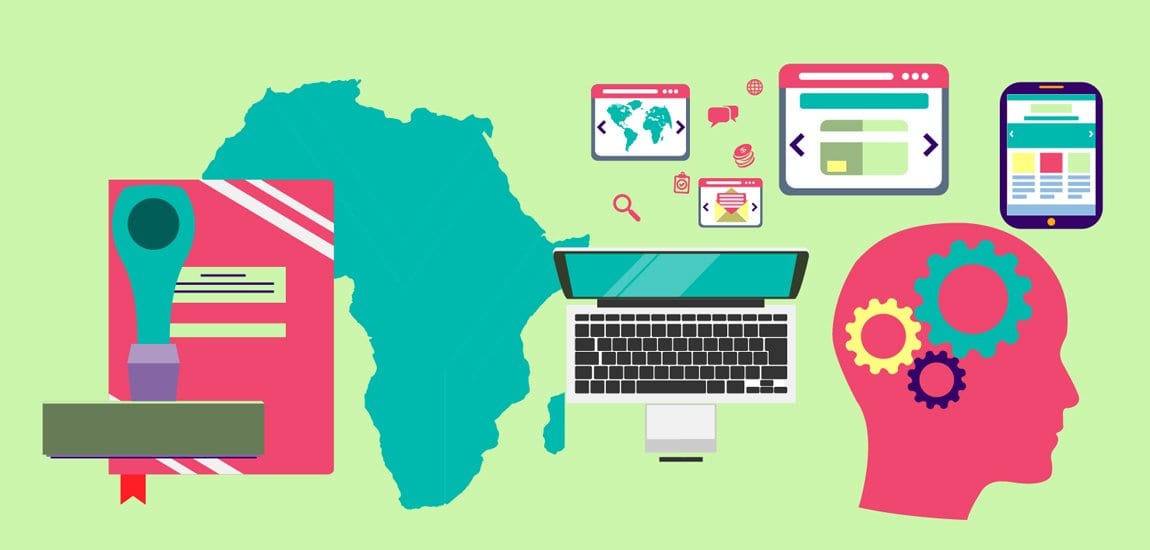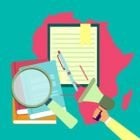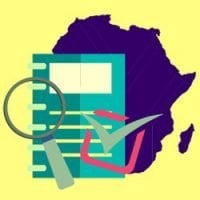
African Language Translation
There is so much around us to notice, but sadly, we only pay attention when we need the information. People rarely seek knowledge anymore just because they want to. Nowadays, people only ever look up a country if they plan on visiting it or if they are arguing about it with someone on the internet. We don’t care about interesting facts anymore even if they get offered to us for free. As a result, we are all missing out on many great things in life. We have no idea what the world is offering us or what kind of life other human beings are living. We will never want to stop exploring if we see what we are missing out on. If we only pick one country or continent and try to get to know it better, we will learn great things about our planet.
There are remarkable things about Asia that you can learn even before you plan to visit Malaysia and Thailand. Dubai isn’t only a good shopping place. Think of it this way, if you can think of more than one good thing about your country then you should know that the rest of the world is same. If your culture seems interesting to you, there are thousand more out there that you haven’t learned about yet.
People read foreign language books not only because they love literature but also to get to know different cultures in a better way. When you hear a British slang, which means something completely different in your country, that’s your clue that things aren’t the same everywhere and there is no harm in learning more about the people we share this planet with. Even if you think that your culture is not vibrant enough, you can learn about the ones that are and get to celebrate them.

Africa:
The world’s second largest continent deserves a lot more attention from us but we are all too busy forming prejudices in our heads to care. The cultural diversity in Africa is remarkable. There are ethnic groups which have their own traditional religions. Each group is so different from each other and yet most of them manage to live in harmony. The people of these tribes love to share their customs and traditions with others and will gladly teach outsiders about their culture, as long as they get offered respect.
African Languages:
Africa is also known for its linguistic diversity. 1500-2000 languages are spoken on the continent, but most only have a couple of thousand speakers. Swahili, Arabic, French, and Yoruba are some of the most spoken languages in Africa. French may have been brought to the land by colonizers, but it wasn’t the only language. 700 million people also speak English, but the number of those who speak it as their mother tongue is only 6.5 million. Afrikaans is another product of colonization and is considered a Dutch vernacular. The ethnic tribes have their languages, mostly named after them, like the Oromo people and the Oromo language.
Native translators specializing in African languages play a pivotal role in bridging linguistic and cultural differences, ensuring precise legal contracts and medical document translations across diverse languages such as Northern Sotho, Xhosa, and Igbo within the African continent’s vast linguistic family of languages. This expertise caters to the specific needs of the language industry, delivering nuanced and accurate translations for a diverse target audience.
African Language Translation:
African languages are known for their variety and dialects. Each dialect is different from the other. Due to the complex nature of the African languages and their dialects, pidgins, and creoles, it can be difficult to translate them accurately. But every effort is worth it when you apply for admission to a foreign university. You can start by finding a reliable translation agency that offers affordable rates, employs qualified staff, and delivers on time. If such an agency has positive user reviews, then you have found the perfect match.
African Language Translation projects, particularly those involving South Africa, require a team of professional translators proficient in the official language and native languages, addressing language barriers and ensuring accurate translations across European languages to meet the diverse linguistic needs of the target audience. The success of such endeavors relies on the expertise and cultural understanding of the team of African translators dedicated to providing high-quality and professional translations.
It encompasses a broad spectrum of language expertise, spanning major languages like Igbo, Xhosa, and lesser-known indigenous languages, offering timely translations for business and personal needs. These services address the challenges posed by low-resource languages, demonstrating a comprehensive language combination to meet diverse linguistic requirements in the African translation landscape.
An experienced team of expert translators specializing in African language translation ensures the delivery of accurate and culturally sensitive medical translations, competent localization services for technical documents, legal communication, and marketing materials. Tailored for the diverse markets of East Africa and Sub-Saharan Africa, these services guarantee that marketing messages, financial services, and legal documents resonate effectively with the local audience, contributing to the preservation of linguistic nuances for future generations.
African Translation Services specializes in providing quality translations for a wide range of languages spoken across the African continent, ensuring linguistic accuracy and cultural nuances in the translation of documents. Their competent team of translators and linguists is well-versed in the diverse languages of the region, making them a reliable choice for accurate translations into the target language, whether it’s a primary African language or a secondary language widely used in the African country of focus. The emphasis on translation quality makes this service an invaluable resource for individuals and businesses seeking precise communication in the linguistic landscape of Africa.
Once you find the right agency, you can hand over your documents to them and relax while they work on your project. If you provide all the right information, they can interpret your details accurately.

Certified Translations:
You will need a certified translation when submitting an interpreted document to a government body or a university. It is the most accurate type of language service and can help people get through difficult situations. But the most important use of a certified translation is when applying for a visa or immigration. When your documents are in an African language but want to immigrate to an English-speaking country, you must get a certified translation of your papers in English. This will help you present your case to the officials, and they will be able to understand everything written on your documents.
A certified translation can only be carried out by a qualified interpreter. Someone with experience in the field will be the perfect option for your project. Once they work on your translation, you can work on the rest of your application and prepare your case as best as possible.
African language translation is not easy. There are so many varieties of language that they even confuse the natives sometimes. But with the help of a qualified and experienced translator, you can get an accurate interpretation of your papers. Once you get your documents translated and your interpreter provides you with a statement attesting to the accuracy of their translation, you can submit all of this to the immigration office. Thanks to the accurate translation, your application will get accepted, and you can move to the country of your choice.
African language translation is not easy. There are so many varieties of language that they even confuse the natives sometimes. But with the help of a qualified and experienced translator, you can get an accurate interpretation of your papers. Once you get your documents translated and your interpreter provides you with a statement attesting to the accuracy of their translation, you can submit all of this to the immigration office. Thanks to the accurate translation, your application will get accepted, and you can move to the country of your choice.
Native Speakers: Bridging Linguistic and Cultural Divides
In a globalized world, native speakers play a pivotal role in bridging linguistic and cultural divides. National languages, like Mandarin in China and Spanish in Mexico, serve as the bedrock of communication and identity within their respective borders. Original documents, whether they be historic manuscripts or contemporary legal texts, are safeguarded by native speakers who possess an intimate understanding of the intricacies of their language. Foreign languages, such as French in Senegal or English in India, are learned and mastered by native speakers who navigate between their mother tongue and these acquired languages with finesse. The language combination of native speakers, like those fluent in both Japanese and English, unlocks opportunities for cross-cultural exchange and collaboration. Amidst this linguistic mosaic, common languages such as Arabic and Russian serve as bridges, facilitating communication and understanding across diverse communities.
Official documents hold immense significance, often requiring meticulous translations to uphold their legal integrity. A notary public, entrusted with the authentication of such documents, ensures their validity through precise linguistic interpretations. In North Africa, a region characterized by its rich cultural tapestry, official translations serve as vital tools for communication and cooperation across diverse communities. Spanning various language families, from Arabic to Berber languages, these translations navigate the intricate linguistic landscape of the continent. African translations, whether for governmental decrees or international agreements, reflect the commitment to inclusivity and accessibility, fostering unity amidst linguistic diversity.
African Translators: Bridging Diverse Communities
expertise and dedication. In the Central African Republic, translators play a vital role in facilitating communication across diverse communities, ensuring understanding and unity amidst linguistic diversity. Across sub-Saharan Africa, translators navigate the intricacies of local languages and dialects, enabling access to information and services for all. Even in the United States, African translators contribute to multicultural understanding, bringing their linguistic skills to bear in diverse settings. In Southern Africa, translators work tirelessly to preserve and promote indigenous languages, enriching cultural heritage and identity. Whether translating official documents or literature, African translators champion minority languages, ensuring they are not overlooked or marginalized in the global conversation.
In Central Africa, Afrikaans speakers represent a unique facet of the linguistic landscape, bringing their expertise to regions where their language is less common. Within the Central African context, Afrikaans speakers serve as language experts, offering valuable insights into the nuances of communication and cultural exchange. Despite being a minority language in this region, their presence contributes to the diversity and richness of Central African society. Whether navigating the complexities of government documents or fostering dialogue in local communities, Afrikaans speakers play a vital role in bridging linguistic divides. As part of the white population in Central Africa, they bring their own perspective and experiences to the region’s social fabric, contributing to its dynamic and evolving identity.
West Africa: Bridging Languages and Cultures
In West Africa, where diversity is a hallmark, the second-largest language holds a pivotal role in communication and governance. Serving as one of the official languages, it facilitates interactions across borders and cultures, enriching the region’s linguistic tapestry. Translation companies in West Africa thrive on the demand for seamless communication between speakers of this language and others, offering services that bridge linguistic divides. Among the most sought-after language pairs in these companies is that of the second-largest language and its counterparts, ensuring accurate and culturally sensitive translations. Legal translation, in particular, requires precision and expertise, and in West Africa, professionals adept in the nuances of legal terminology ensure that laws and agreements are accurately conveyed across linguistic boundaries, fostering understanding and cooperation within the region and beyond.
East Africa and North Africa, despite their geographical separation, share linguistic connections that trace back to common language families. From the Swahili-speaking coasts of East Africa to the Berber-speaking communities of North Africa, these regions reflect the diversity and richness of African languages. Even in Cape Town, situated at the southern tip of the continent, echoes of these language families can be found amidst the linguistic blend shaped by historical migrations and interactions. Amidst this diversity, Germanic languages also find their place, particularly in academic and business spheres, showcasing the global influence on African linguistic landscapes. Just as the Wayback Machine archives internet history, these linguistic connections serve as a digital record of Africa’s linguistic heritage, preserving and reflecting the evolution of languages over time.
Celebrating South Africa’s Linguistic Diversity
Statistics South Africa meticulously gathers and analyzes data to provide insights into various aspects of the nation’s demographics and economy. Publications from renowned academic institutions like Cambridge University Press and Oxford University Press contribute significantly to global scholarship and learning. Within South Africa, where diversity is celebrated, the dominant language shapes communication and culture. In the broader Nguni-Tsonga language subfamily, encompassing languages like Zulu, Xhosa, and Tsonga, rich linguistic heritage thrives, offering a glimpse into the intricate tapestry of African languages.
In South Africa, Xitsonga stands as the nation’s third-largest African language, representing a vibrant component of its cultural mosaic. With a substantial population of first-language Xitsonga speakers, the language serves as a vital means of expression and identity. Similarly, Chuana , spoken by a significant number of first-language users, contributes to the linguistic diversity of the nation. Despite differences in population sizes between first-language and second-language users, both groups play crucial roles in the preservation and promotion of these languages, enriching South Africa’s linguistic landscape and fostering a sense of belonging among its diverse communities.
FREQUENTLY ASKED QUESTIONS
Why is it important to translate documents into African languages?
Translating documents into African languages is crucial for promoting inclusivity and ensuring that information is accessible to all people, regardless of their primary language. It helps preserve cultural heritage, supports local education and governance, and fosters a sense of identity and belonging within diverse communities.
What are some challenges faced by translators working with African languages?
Translators working with African languages often face challenges such as a lack of standardized terminology, limited resources and reference materials, dialectal variations, and the need for cultural sensitivity. Additionally, some African languages may not have a written form, making translation more complex.
How does the translation of legal documents into African languages impact communities?
Translating legal documents into African languages ensures that all community members understand their rights and obligations, promoting justice and equality. It also enhances transparency and trust in legal and governmental processes, facilitating better communication and cooperation within diverse populations.
What role do African translators play in education and knowledge dissemination?
African translators play a vital role in education by translating textbooks, academic materials, and other educational resources into local languages. This makes education more accessible, supports literacy, and helps preserve and transmit indigenous knowledge and cultural practices to future generations.
How can technology aid in the translation of African languages?
Technology can significantly aid in the translation of African languages through tools like machine translation, computer-assisted translation (CAT) software, and digital dictionaries. These tools can help streamline the translation process, provide access to a broader range of resources, and support the development of standardized terminology and linguistic databases.

Sorry, the comment form is closed at this time.